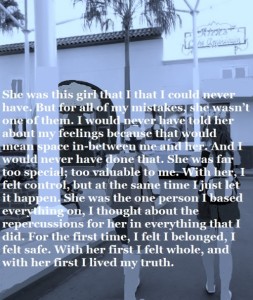A few weeks ago, I took a survey by Marya Hornbacher, author of Madness: A Bipolar Life, which probed my feelings about mental illness. She has written back with more questions. Here they are with my answers:
Do you consider mental illness a chronic physical disease? Please explain your response.
There’s no other explanation for it. I have tried willing myself into better moods or trying to stop my impulsiveness, but they were just too massive a problem for mere force of mind. It was like trying to prevent my cold from generating mucous or insisting that my pancreas produce more insulin. I tried, believe me, I tried to stop the tidal wave of emotions that consumed me but they kept rolling over me and I drowned. When I stopped seeing it as a character flaw and began treating it as a disease of my brain, I got on medications. While my nasty habits didn’t vanish overnight, the moods that drove them achieved a halcyon state in which I was not thwarted in my efforts to change. Just as my heart medications lowered my blood pressure, so, too, my mood stabilizers calmed me.
